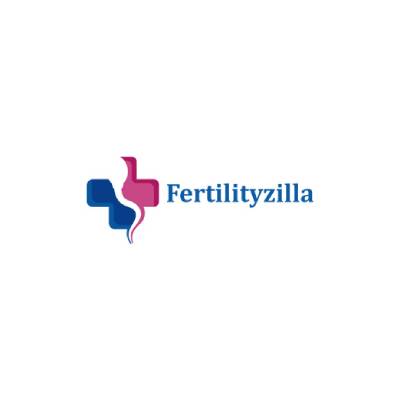Getting Pregnant with Endometriosis
Female Infertility
Dr. Smriti
Jul 27, 2021
These days many women face fertility issues due to many factors. One of the factors is endometriosis, which can cause fertility issues. Getting pregnant with endometriosis is possible, but it can come with little difficulty. Nearly half of the women having endometriosis face trouble getting pregnant. Usually, fertility problems depend on your age, your partner’s fertility, and the severity of endometriosis.
Now that you have been trying to conceive but have been unsuccessful for some time so after your fertility evaluation besides diagnostic laparoscopic surgery, you are diagnosed with endometriosis. The endometriosis pregnancy rates in normal couples are nearly 2-5%.
What is endometriosis?
Endometriosis usually happens when the endometrium, that is a tissue lining the inside of a woman’s uterus, grows outside it. Like the uterine tissue that works in a period this endometrium tissue also works similarly.
At the end of the cycle, this tissue will break and bleed. There is no place for this blood to go thus surrounding areas may get swollen and inflamed. You may also have lesions and scar tissue. Endometriosis is most common on ovaries. It is seen that most women having mild to moderate endometriosis their chances of getting pregnant with endometriosis is 70% without the requirement of any treatment.
Types of Endometriosis
Depending on where it is endometriosis is of three types:
- Superficial peritoneal lesion: It is the most common kind of endometriosis. This lesion is there on your peritoneum, it is a thin film lining your pelvic cavity.
- Endometrioma (Ovarian lesion): In your ovaries dark, fluid-filled cysts also known as chocolate cysts are formed. Often they don’t respond well to treatment thus damage healthy tissues.
- Deeply infiltrating endometriosis: This type of endometriosis grows under your peritoneum and can include organs near your uterus, like the bladder or bowels. Nearly 1% to 5% of women have this kind of endometriosis.
Stages of Endometriosis
There are four stages of Endometriosis:
- Stage I (minimal): In this stage, the patient has few small lesions but no scar tissue.
- Stage II (mild): In this, the numbers of lesions are more but no scar tissue. Less than 2inch of the abdomen is involved.
- Stage III (moderate): The lesions may be deep. Around your ovaries or fallopian tubes you may have endometriomas and scar tissue.
- Stage IV (severe): In your ovaries there are many lesions and may be large cysts. You may witness scar tissue around your ovaries and fallopian tubes or between your lower part of intestine and uterus.
Treatment for Endometriosis
No cure is available for endometriosis. Usually treatment includes medication or surgery. You may need to try different treatments as to know what makes you feel better.
Medicine for Pain
An over-the-counter pain reliever is prescribed by your doctor. For several people Non-steroidal anti-inflammatory drugs (NSAIDs) such as ibuprofen (Advil, Motrin) or naproxen (Aleve) works. If your pain is not relieved by these then you can ask your doctor for other options.
Hormones
Hormonal therapy helps in lowering done the amount of estrogen produced by your body which in-turn can stop your periods. This helps in less bleeding of lesions thus causing less inflammation, scarring, and cyst formation. Some of the common hormones include:
- Vaginal rings, birth control pills, and patches
- Progestin-only contraceptives
- Danzol (Danocrine)
Surgery
To take out most of the affected tissues your doctor may recommend surgery. In some cases, with the help of surgery symptoms are lowered and can also help you get pregnant.
Change in Lifestyle
To get quick relief from the pain of endometriosis you can go for warm baths, heating pads, and hot water bottles. Over the time some changes in lifestyle may also help like:
- Eating right: Add more fresh fruits and vegetables to your diet, as per research foods rich in omega-3 fatty acids, such as walnuts and salmon helps a lot in endometriosis. You should also avoid alcohol and caffeine.
- Exercise regularly: There are numerous reasons why exercise is a great way to manage endometriosis. Working out helps your heart to pump more blood to all your organs thus enhancing circulation and also helps in nutrients and oxygen to flow to all your symptoms.
These are some of the treatments to help in endometriosis.
How can you get pregnant with endometriosis?
Prior starting with any fertility treatment a complete endometriosis and infertility evaluation is performed. This usually includes hormone and other blood tests besides checking the partner’s sperm count. Treatments depend on the stage of endometriosis such as:
Stage I-II Endometriosis Clomiphene IUI treatment
In stage I-II endometriosis to enhance the likelihood of pregnancy clomiphene citrate that is a fertility medication is given soon after the menstrual periods start for 5 days. Now when the ovulation time starts, the male partner ejaculates sperm in a sterile cup.
Later the sperm is brought to the laboratory and processed. Then this sperm is placed in the uterus of the woman when she is ovulating with the help of a thin tube. This is performed at the time of a speculum exam and it feels same as Pap test. The success rate of this treatment is approximately 10% for women who are less than 40.
If this is not successful for three or more months then the next step is
- The use of injected fertility medications with IUI
- In vitro fertilization
Stage III-IV Endometriosis
If pregnancy does not happen within six months to a year after surgical treatment of moderate to severe endometriosis, then your doctor may recommend in vitro fertilization.
In-Vitro Fertilization (IVF)
Prior going for this treatment your doctor will explain you the chances of being successful of in-vitro fertilization depending on your age and hormone testing. Overall In vitro fertilization is considered the most effective and provides you the best pregnancy option. It is quite expensive and invasive. Depending on the circumstance, women whose likelihood to conceive has reduced, IVF is the most recommended option. In most of the cases it is advised to skip IUI and directly go for IVF and some of these circumstances include:
- Have stage 3 or 4 endometriosis
- Women over 35 years
- Have multiple infertility risk factors such as male infertility or low ovarian reserves
- Prefer to opt for IVF despite the costs and invasive nature of the procedure
It is quite complicated to predict IVF success rate depending on cases. So now the answer to the question, Can you get pregnant with endometriosis is ‘Yes’.
Getting pregnant with endometriosis success stories
Naira and Rahul pregnancy stories with endometriosis, when everyone was eager to known how long did it take you to get pregnant with endometriosis? Naira was very eager to tell her story. As per doctor Sherya’s suggestion we started to try for pregnancy but even after trying for six months we could not conceive but we didn’t lose hope.
We consulted Doctor Sherya and asked about next step. I had mild Endometriosis therefore was suggested to go for ovulation induction (OI) and Intrauterine Insemination (IUI). We were able to conceive after our second IUI cycle and were filled with joy.
FAQs
What are the chances of getting pregnant with endometriosis?
Usually endometriosis can have effect on your chances of conceiving often women with mild endometriosis are not infertile. It is said that an estimated 70% women with mild to moderate endometriosis can get pregnant without treatment.
Is it hard to get pregnant with endometriosis?
For most women getting pregnant with endometriosis is very possible. Well due to endometriosis it may be hard to0 conceive on your won, but depending on your condition, age, overall health and treatment options your chances to conceive is high.
What are the chances of getting pregnant with stage 4 endometriosis?
People with stage III endometriosis have nearly 70-75% chances of conceiving and those with stage IV endometriosis have nearly 50-60% chances. In case In Vitro Fertilization is needed then the rate goes little higher.
What is the best fertility treatment for endometriosis?
In Stage I-II endometriosis Clomiphene IUI treatment. In order to enhance the likelihood of pregnancy clomiphene citrate that is a fertility medicine is given for 5 days as soon as the menstrual period starts.
References
https://www.healthline.com/health/pregnancy
https://www.verywellhealth.com
https://www.tommys.org/pregnancy-information
https://www.everydayhealth.com/womens-health

